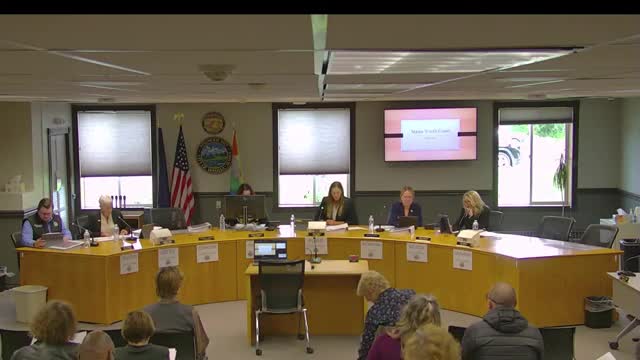Youth Court Program Transforms Lives Through Restorative Justice
August 13, 2024 | Wasilla, Matanuska-Susitna Borough, Alaska
This article was created by AI summarizing key points discussed. AI makes mistakes, so for full details and context, please refer to the video of the full meeting. Please report any errors so we can fix them. Report an error »

Braden Holtz, a senior at Colony High School and president of both the Matsu Youth Court and the United Youth Courts of Alaska, presented a compelling overview of the Matsu Youth Court program during a recent government meeting. Holtz, who has been involved with the program since 2019, emphasized its role as a restorative justice initiative aimed at rehabilitating youth offenders rather than punishing them.
The Matsu Youth Court operates on the principle of peer judgment, allowing young offenders to be tried by their peers in a supportive environment. This approach not only alleviates the anxiety often associated with adult court proceedings but also fosters a sense of community and accountability among participants. Offenders engage in community service as a form of restitution, with tasks ranging from assisting at food pantries to working at recycling centers. Holtz noted that this model has proven effective, with 88% of participants not reoffending within four years of completing the program.
Holtz highlighted the diverse range of offenses handled by the court, including marijuana possession on school grounds, assault, and theft. He explained that the program not only benefits offenders by providing them with a clean slate upon turning 18 but also enriches the experiences of youth volunteers. Participants gain valuable skills in public speaking, leadership, and legal processes, which can enhance their college applications and future career prospects.
Statistical data presented by Holtz revealed a steady increase in community service hours contributed by both offenders and volunteers, indicating the program's growing impact. In the 2024 fiscal year, juvenile offenders completed 555 hours of community service, while student volunteers contributed 1,814 hours.
Holtz concluded his presentation by advocating for continued support and visibility for the Matsu Youth Court, emphasizing its importance in helping youth navigate their paths toward adulthood without the burden of a criminal record. The program's success hinges on community engagement and the opportunity for more young people to participate in its restorative justice framework.
The Matsu Youth Court operates on the principle of peer judgment, allowing young offenders to be tried by their peers in a supportive environment. This approach not only alleviates the anxiety often associated with adult court proceedings but also fosters a sense of community and accountability among participants. Offenders engage in community service as a form of restitution, with tasks ranging from assisting at food pantries to working at recycling centers. Holtz noted that this model has proven effective, with 88% of participants not reoffending within four years of completing the program.
Holtz highlighted the diverse range of offenses handled by the court, including marijuana possession on school grounds, assault, and theft. He explained that the program not only benefits offenders by providing them with a clean slate upon turning 18 but also enriches the experiences of youth volunteers. Participants gain valuable skills in public speaking, leadership, and legal processes, which can enhance their college applications and future career prospects.
Statistical data presented by Holtz revealed a steady increase in community service hours contributed by both offenders and volunteers, indicating the program's growing impact. In the 2024 fiscal year, juvenile offenders completed 555 hours of community service, while student volunteers contributed 1,814 hours.
Holtz concluded his presentation by advocating for continued support and visibility for the Matsu Youth Court, emphasizing its importance in helping youth navigate their paths toward adulthood without the burden of a criminal record. The program's success hinges on community engagement and the opportunity for more young people to participate in its restorative justice framework.
View the Full Meeting & All Its Details
This article offers just a summary. Unlock complete video, transcripts, and insights as a Founder Member.
✓
Watch full, unedited meeting videos
✓
Search every word spoken in unlimited transcripts
✓
AI summaries & real-time alerts (all government levels)
✓
Permanent access to expanding government content
30-day money-back guarantee

